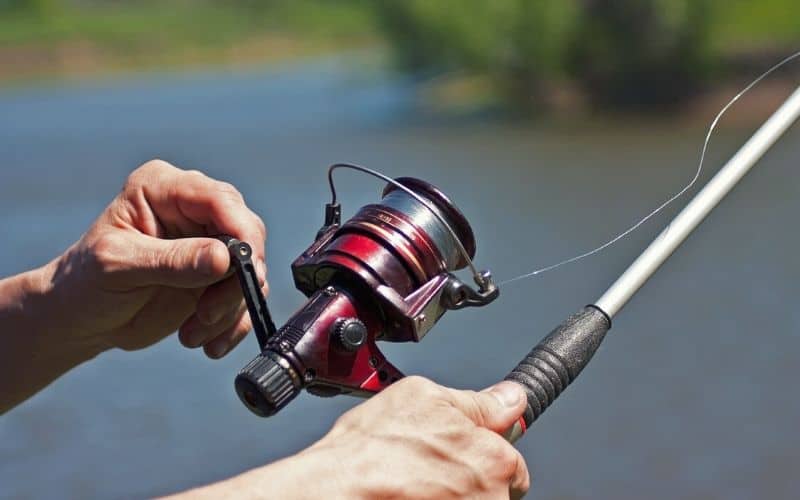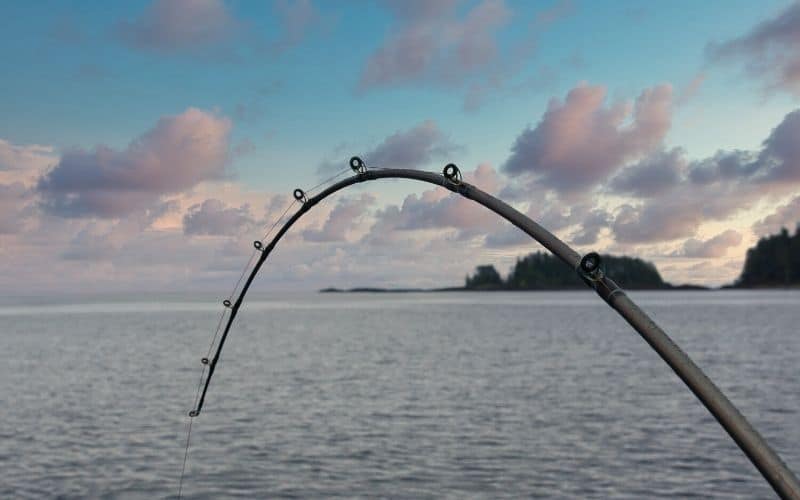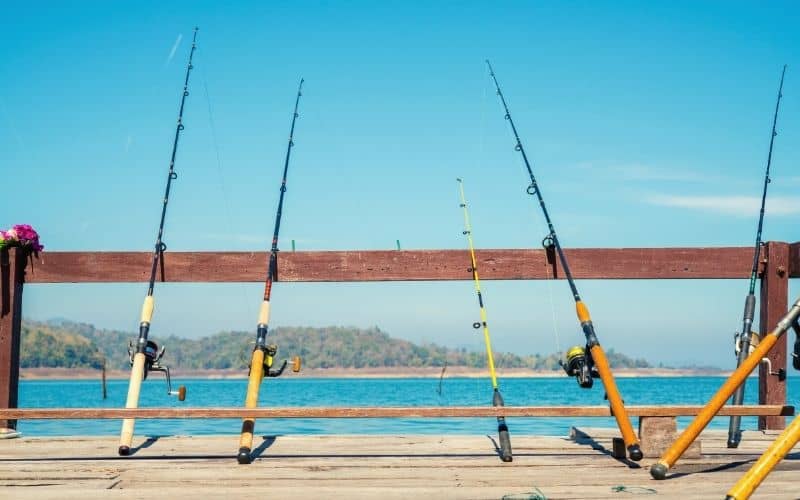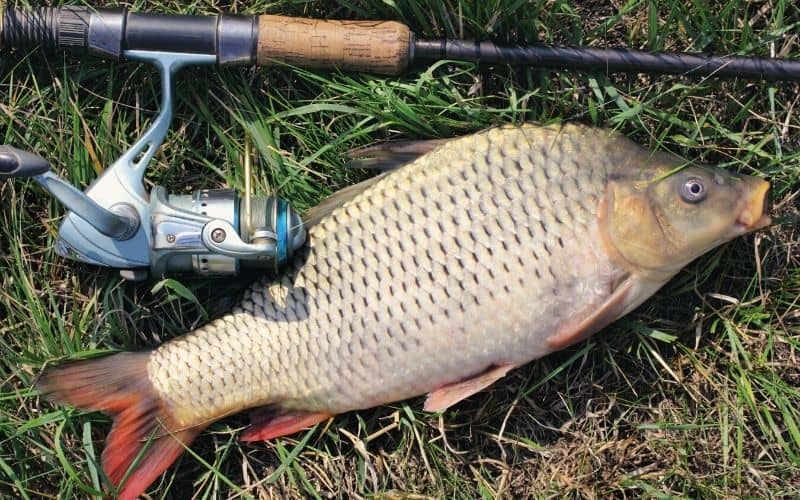There are few things sweeter than catching your own dinner!
While fishing and backpacking go hand-in-hand, it’s not always easy to cram all the fishing gear you need into your backpack. Modern poles like telescopic rods and tenkara poles, however, are compact and can be collapsed to fit in any backpack with ease.
Use our guide to help you pick the best fishing rod for your backpacking needs. We’ve got all the info you need to choose the ideal rod for both your backpacking and angling styles.
Best Backpacking Fishing Pole: Our Top 9 Picks
The Top Telescopic Fishing Rods for Backpacking
Best Collapsible Backpacking Fishing Poles
Best Tenkara Rods
How to Choose the Best Backpacking Fishing Rod
Type of Rod
Rods come in a variety of styles and each is suited for a different technique. Here are some of the most common:
Spinning Rod
Spinning reels are located “upside-down” or on the backside of the rod. This is the perfect rod for beginners since they’re easy to use and allow for long casts. Spinning rods are not always the most appropriate for backpackers since they tend to be heavy and bulky.
Backpacking Fly Rods
Backpacking fly fishing rods are built specifically for fly fishing and while they look like normal poles they have different features. The fly used with a fly rod is practically weightless so it requires a different casting technique than spin fishing.
Baitcasting Rod
Baitcasting rods have the reel sitting on top of the pole and this allows for a stronger line to catch bigger specimens. As its name implies, baitcasting rods are used for casting bait into the water. The downside is the pole’s limited ability to cast lighter lures and use lighter lines.

Telescoping Rod or Collapsible Rod?
Both telescoping and collapsible rods are great for travel thanks to their compact size, but which is better for catching fish?
Every angler or backpacker will have their own opinion, but it all comes down to preference. A collapsible fishing pole for backpacking will be bulkier and require more setup, but they’re usually stronger and more durable, making them a better choice for avid fishermen.
Telescoping or Tenkara fishing rods are easier to set up and more portable since they collapse down to just a few feet. Beginners or backpackers short on space will find them to be the most convenient choice.
Rod Power
Simply put, a rod’s power has to do with how much pressure it takes to make the rod bend. You want the rod to bend as that provides the tension needed to reel in the fish.

A rod’s power can range from ultralight to heavy, sometimes depicted with a rating from 1 to 5. As a general rule of thumb, the lighter the rod, the smaller the fish it will be suited for.
For backpacking, it’s advised to stick to a light to medium-power rod. You won’t need any more power than that for the fish you’ll encounter, so avoid the extra weight.
Rod Length
For backpackers, one of your biggest considerations should be the length of the rod. The length you choose will determine where you can fish and if the rod will fit into your pack.
A rod’s length is measured from the tip to the grip. Most rods range from 6 to 12 feet. Longer rods are great for long casts and overcoming dense vegetation, but they are bulkier and heavier.

Shorter rods have a shorter reach but they’re lightweight and easier to work with when in trees or vegetation.
Reel Gear Ratio
The reel gear ratio of a rod is a pretty technical subject that requires some science to grasp (those that want to deep dive into the subject can do so here). To keep it simple, the reel-to-gear ratio has to do with how quickly the fishing line is pulled back in when you’re turning the reel.
In general, low ratios are used for big baits and big fish while higher ratios are required to reel in fast fish. For example, a 6.0:1 ratio means that for every revolution of the reel handle, the spool will spin 6 times.

This balanced retrieve is the perfect middle ground for backpackers as it allows you to use a variety of baits and try your hand at fish caught in both the “slow” and “fast” ratios as well, and is ideal for both freshwater fishing and saltwater fishing.
Rod Weight
Backpackers know that every gram matters, so choosing a lightweight rod will be important. If you go too light, however, you’ll limit the type of fish you can catch. Consider choosing a rod that’s a light to medium weight to allow yourself the opportunity for a variety of catches without being too weighed down.
Final Thoughts
We all know that when backpacking, weight, and size are the enemies. We hope we’ve shown you that there are lots of good compact choices available out there to allow you to enjoy a spot of angling even while on the trail. Choose any backpacking fishing rod on our list and you won’t be disappointed!
Be sure to let us know in the comments if you have any questions about choosing the best fishing rod for your upcoming backpacking trips!









